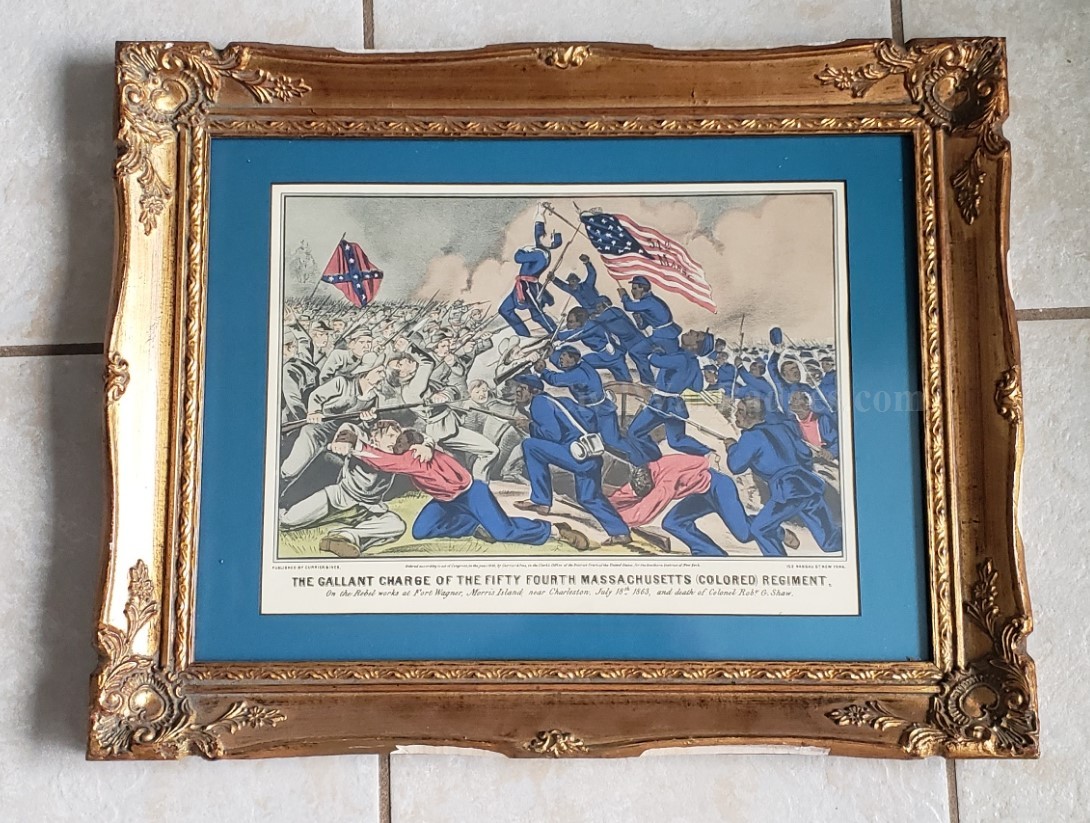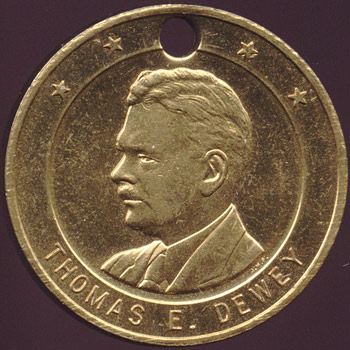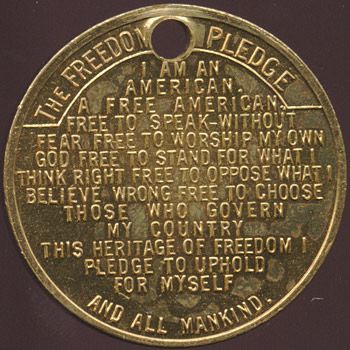THOMAS E. DEWEY MEDAL
Item #: CWB2152
Click on an image to enlarge
MEASURES APPROX. 1.1" Presidential candidacies Dewey started running for the 1940 Republican nomination in 1939 but he would lose it to Wendell Willkie, who went on to be defeated in the general election. At that time Dewey was considered an isolationist, like Wilkie's other rivals, Senators Robert Taft and Arthur Vandenberg. Dewey's position evolved during the 1940s and he was generally considered an internationalist and classed with the moderates in later years. [edit]Election of 1944 Dewey sought and won the Republican nomination in 1944 but was defeated in the 1944 presidential election by Franklin Delano Roosevelt, the popular wartime leader. Dewey, who believed that the New Deal was excessive, had campaigned vigorously against Roosevelt and did manage to get more votes than any Republican candidate since Herbert Hoover in the 1928. [edit]Election of 1948 The Chicago Daily Tribune, like most of the press, believed Dewey would comfortably win the election, as shown by this post-election headline, which Harry Truman happily displays in this photo. He is probably best known as the Republican candidate in the 1948 presidential election in which, due to miscalculations by pollsters and the press, he was projected as the winner. The Chicago Daily Tribune had even gone so far as to print "DEWEY DEFEATS TRUMAN" as its post-election headline, though the election was actually won by Harry S. Truman, the incumbent. Ironically, Dewey was the first presidential candidate to have his own polling unit. Given Truman's sinking popularity, Dewey had seemed unstoppable. The Republicans figured that all they had to do was to avoid destroying a certain election victory, and as such, Dewey didn't take any risks. He spoke in platitudes, trying to transcend politics. Speech after speech was filled with empty statements of the obvious, such as the famous quote: "You know that your future is still ahead of you". An editorial in the Louisville Courier-Journal summed it up best: No presidential candidate in the future will be so inept that four of his major speeches can be boiled down to these historic four sentences: Agriculture is important. Our rivers are full of fish. You cannot have freedom without liberty. Our future lies ahead. [1] It was believed that Dewey's poor showing in 1944 was partly due to being too aggressive, a fault which his campaign aimed to avoid this time. Dewey was not as conservative as the Republican congress, which also proved problematic for him. Truman tied Dewey to the "do-nothing" Congress. However, unlike Robert Taft, a powerful Senator from Ohio and rival for the nomination in 1948, Dewey was no longer an isolationist. He supported the Marshall Plan, aid to Greece, recognition of Israel, and the Berlin airlift. [edit]Later career Dewey did not run for president in 1952 and instead helped Dwight Eisenhower win the Republican Party's presidential nomination and the subsequent election. Dewey's third term as governor of New York expired in 1955 after which he retired from politics and returned to his law practice. He died of a heart attack on March 16, 1971. Al Taliaferro, the Disney comic strip artist and creator of the Huey, Dewey and Louie ducklings, named Dewey after Thomas Dewey. In 1964, the New York State Legislature officially renamed the New York State Thruway in honor of Dewey. The official designation is, however, rarely used in reference to the road, and the naming was opposed by many Italian Americans, who are a relatively large and important demographic presence in the state.
Shipping Weight:
0.75 lb
Item # CWB2152
$45.00 USD



